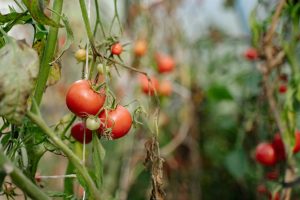Unified Action for Sustainable Food Systems: New Financing Models
The global food system is facing multiple challenges – from climate change and natural resource depletion to food insecurity and malnutrition. To address these challenges, there is a growing recognition for the need to adopt more sustainable and resilient food systems. And while various approaches and initiatives have been put in place to achieve this goal, one key aspect that remains crucial is financing. In this article, we’ll explore the concept of unified action for sustainable food systems and how new financing models can support its implementation for a better and more equitable future.
What is Unified Action for Sustainable Food Systems?
Unified action for sustainable food systems refers to the coordinated efforts of multiple stakeholders – government agencies, private sector, civil society, and local communities – to transform the current food system into one that is more sustainable, equitable, and resilient. It recognizes the interconnectedness of various components in the food system – from production and processing to distribution and consumption – and the need for collaboration and collective action to address its complex challenges.
The Role of Financing in Achieving Sustainable Food Systems
For any transformation to take place, adequate and appropriate financing is crucial. This is particularly true for the global food system, which requires significant investments to shift towards sustainability. In fact, according to the Food and Agriculture Organization (FAO), annual investments of at least $350 billion are needed to achieve the Sustainable Development Goals (SDGs) related to food and agriculture globally.
Current Financing Models for Sustainable Food Systems
Traditionally, financing for food systems has mostly been in the form of large-scale investments in agriculture, mostly driven by the private sector. However, this approach has often resulted in negative impacts on the environment, social inequalities, and food insecurity. As such, there is a growing need for new financing models that focus on sustainability and inclusivity.
One such model is impact investing, which aims to generate both financial and social or environmental returns. Impact investors provide capital to businesses and organizations that address critical social and environmental issues, including those related to food systems. This could include investing in sustainable agriculture, food processing, or distribution businesses that promote sustainable practices, reduce food waste, and improve access to healthy and nutritious food.
In addition, there is also a growing trend of crowdfunding for sustainable food systems. This form of financing relies on the collective effort of individuals to pool their resources and support projects with a social or environmental impact. With the rise of digital platforms, crowdfunding has become an accessible and efficient way for small and medium enterprises (SMEs) and community-based initiatives to secure funding for sustainable food systems projects.
The Need for Unified Action in Financing
While impact investment and crowdfunding show promising potential in financing sustainable food systems, they alone cannot achieve the transformation needed. There is a need for unified action and collaboration among various stakeholders to ensure the success of these financing models.
For instance, governments can play a crucial role in creating enabling policies and incentives that promote sustainable agriculture and support impact investing and crowdfunding. Private sector actors can also step up and invest in sustainable food systems, not just for financial returns but also to meet their sustainability goals and contribute to social and environmental well-being. Civil society organizations can advocate for more inclusive and equitable financing models and help bridge the gap between small-scale producers and investors through capacity building and networking.
The Benefits of Unified Action for Sustainable Food Systems
The benefits of unified action for sustainable food systems extend beyond just economic gains. By working together, stakeholders can create a more resilient and equitable food system that is better equipped to tackle the challenges of climate change, food insecurity, and malnutrition. Sustainable food systems can also create new opportunities for decent jobs, reduce poverty and social inequalities, and improve the overall well-being of communities and the environment.
Conclusion
In summary, unified action for sustainable food systems is a necessary approach to address the multiple challenges facing our current global food system. With the right financing models, such as impact investing and crowdfunding, and a collaborative effort among various stakeholders, we can achieve a more sustainable, resilient, and equitable food system that benefits both people and the planet.







